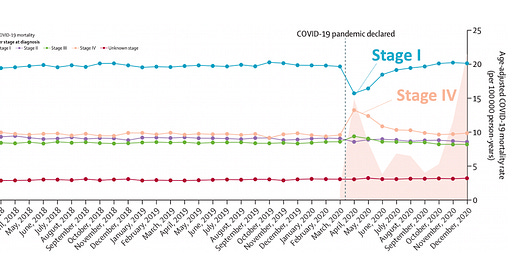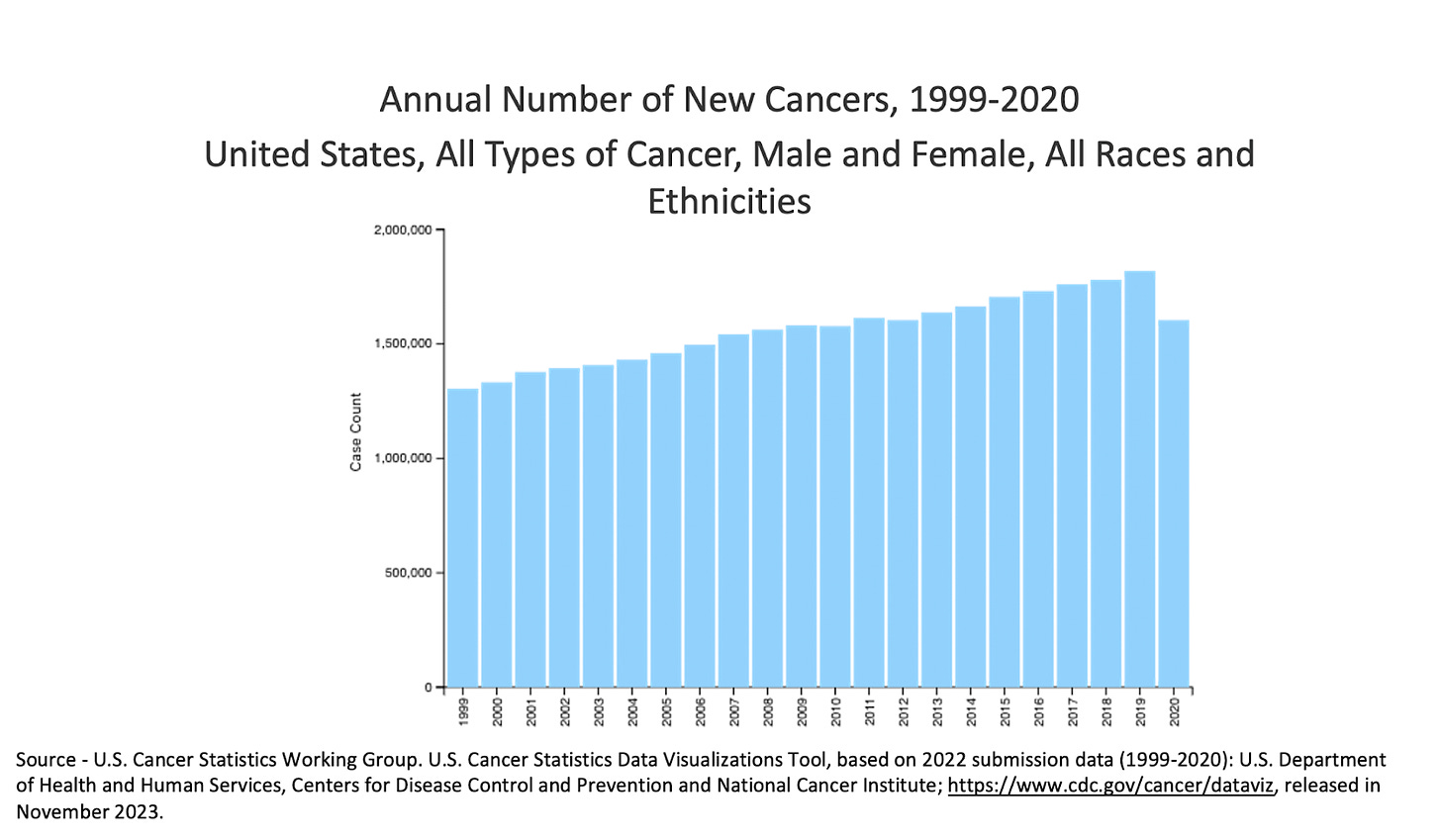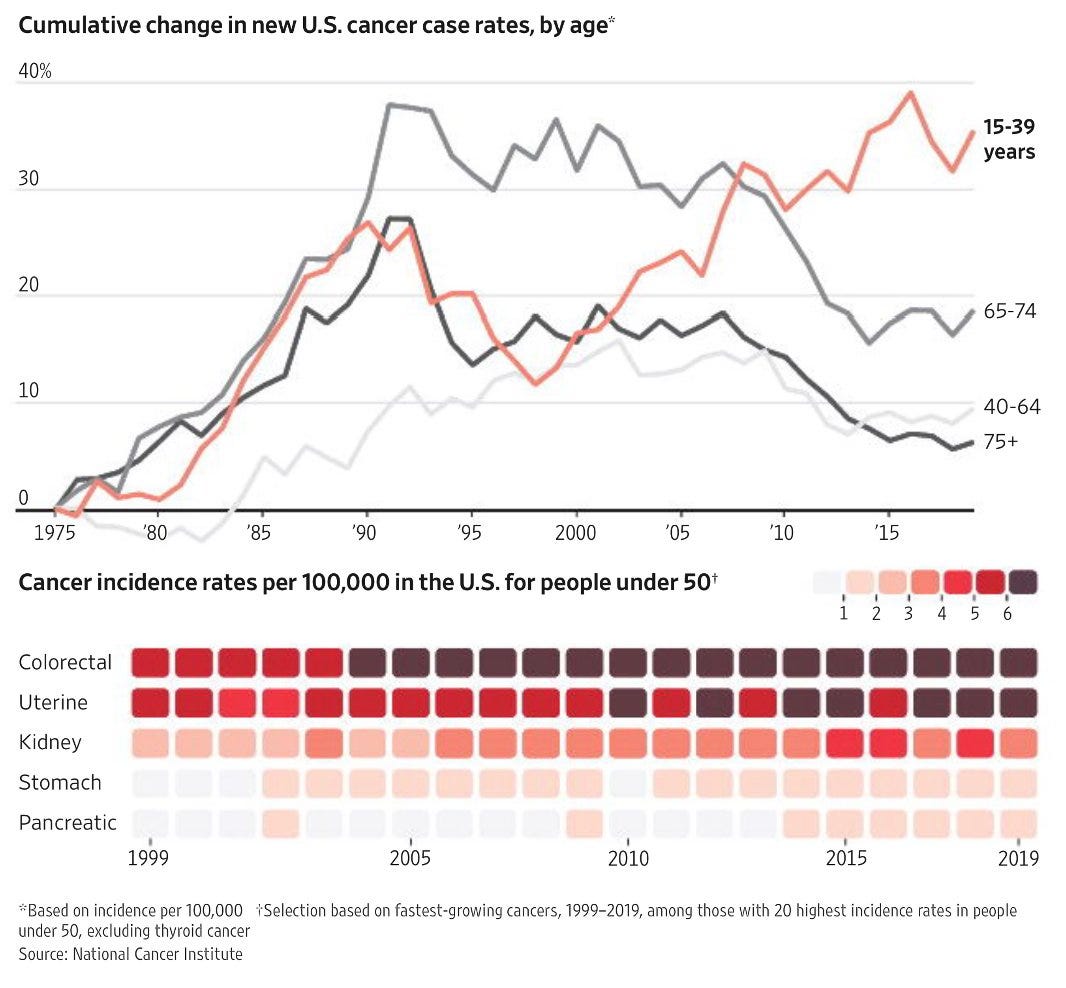It seems there is no disease that Covid-19 vaccines haven’t been accused of causing. The latest stemmed from news of the Princess of Wales announcing her cancer diagnosis. This has renewed the circulation of the rumor that Covid-19 vaccines are causing “turbo cancer.”
Where did this rumor come from? Is there a kernel of truth? What does the data show about cancer rates before and during the pandemic?
“Turbo-cancer” rumors started back in 2022
This rumor isn’t new; it just keeps getting repurposed.
It first started when a doctor claimed on a podcast that a 61-year-old patient got cancer after getting the vaccine. Snippets were shared on social media thousands and thousands of times.
This rumor was later perpetuated when a study with a single mouse developed cancer after getting a huge dose of the Covid-19 vaccine. Since then, many more mice were tested, and this didn’t happen. Also, mice aren’t humans.
Additionally fueling this rumor was the fear that mRNA vaccines alter a person’s DNA. (They don’t.)
Social media, some physicians, and even politicians have since used the phrase “turbo cancer” to describe rapidly progressing or aggressive cancer allegedly caused by vaccination. This isn’t an official medical term.
Kernel of truth
As with many rumors, there is a kernel of truth. Cancers were more likely to be diagnosed at a later stage (i.e., more aggressive) after Covid-19 hit.
It’s likely that many cases of “turbo cancer” were actually just cancers diagnosed at a late stage, as these progress quickly and can make a seemingly healthy person sick very fast. But this started well before vaccines were available.
Why did this happen?
The pandemic caused a delay in cancer screenings.
Early in the pandemic, many non-emergent medical services were delayed or shut down, and many people avoided the ER unless they felt it was an absolute emergency. Together, this meant that people who otherwise would have had their cancer diagnosed earlier—because the odd belly pain normally would have prompted an ER visit or the routine cancer screening appointment was delayed, for example—ended up not seeking care. This led to a big drop in new cancer diagnoses in 2020.
So we weren’t diagnosing cancer as early as we usually do. We were missing early cases of cancer, so more people were getting diagnosed with cancer at a later stage.
An estimated 10 million cancer screenings were missed from January to July 2020.
A study in the U.S. found that while new cancer diagnoses dipped in the first year of the pandemic, the proportion that were diagnosed at a later stage dramatically increased.
A study in Italy similarly found that colon cancer diagnosed during the pandemic (March 2020 to December 2021) was more likely to be advanced stage compared to colon cancers diagnosed before the pandemic.

What about cancer in younger people?
The “turbo cancer” rumor tied in with the “died suddenly” rumor with a focus on young people: Why are all these young people getting cancer?
While cancer deaths in the U.S. are declining overall, cancer diagnoses among those 15-39 years old are increasing, particularly colon and rectal cancer. This increase started in ~2000, and preliminary estimates of recent years suggest this is continuing to increase. This prompted a recent change in recommendations for colon cancer screening: instead of starting at age 50, it’s now recommended to start screening with a colonoscopy at age 45.
Understanding why is critical. We don’t have a full answer at this time, but it may be connected to changes in diet, lifestyle, gut bacteria, and many other factors. But one thing is clear—the Covid-19 vaccines are not to blame, as this increase started long before mRNA vaccines were rolled out in 2021.
The post hoc fallacy that just keeps going
Most of the world has now received a Covid-19 vaccine. Any time a high-profile individual, friend, or family member is diagnosed with a health condition, some who are skeptical of the vaccine rush to blame Covid-19 vaccines.
This is an example of the post hoc fallacy—the flawed assumption that if one event (vaccination) precedes another (a new diagnosis), the first event must have caused the second. This error in reasoning has been repeated over and over throughout the pandemic and explains why so many different diseases have been blamed on COVID-19 vaccines ad infinitum.
Bottom line
The pandemic caused a significant disruption in cancer screenings, and tragically, that meant many people’s cancer diagnoses were delayed, only to be found when they were late-stage. This started well before Covid-19 vaccines were rolled out, and there is no evidence to suggest Covid-19 vaccines are causing a surge in cancer. Even among younger people like Kate Middleton, who unfortunately, are increasingly being diagnosed with cancer.
Love, YLE and KP
Kristen Panthagani, MD, PhD, is a resident physician and Yale Emergency Scholar, completing a combined Emergency Medicine residency and research fellowship focusing on health literacy and communication. You can find her on Threads, Instagram, or subscribe to her website here. (Also, if it wasn’t obvious, the views expressed belong to Dr. P, not her employer.)
“Your Local Epidemiologist (YLE)” is written by Dr. Katelyn Jetelina, M.P.H. Ph.D.—an epidemiologist, wife, and mom of two little girls. During the day, she is a senior scientific consultant to several organizations, including CDC. At night, she writes this newsletter. Her main goal is to “translate” the ever-evolving public health world so that people will be well-equipped to make evidence-based decisions. This newsletter is free, thanks to the generous support of fellow YLE community members. To support this effort, subscribe below:








Another platinum star post. If everyone subscribed to you (and as many as can do it as paid subscribers), we would all be SO much better informed. Thanks to you and your team for the superb work on this and all else.
Yes, missed cancer diagnoses and delayed treatment is one of the big reasons that lockdowns were a disaster. There were people screaming in 2020 about the health impacts of keeping people away from doctors/hospitals but they were shouted down or censored.
I agree with you that there's no clear evidence that covid-19 vaccines are causing cancers. Unfortunately, we have no good long-term clinical trials that can provide some answers. Covid-19 vaccines may or may not be causing some cancers. We simply don't know because we weren't interested in running proper clinical trials.